June 17, 2025 | 18:51 GMT +7
June 17, 2025 | 18:51 GMT +7
Hotline: 0913.378.918
June 17, 2025 | 18:51 GMT +7
Hotline: 0913.378.918
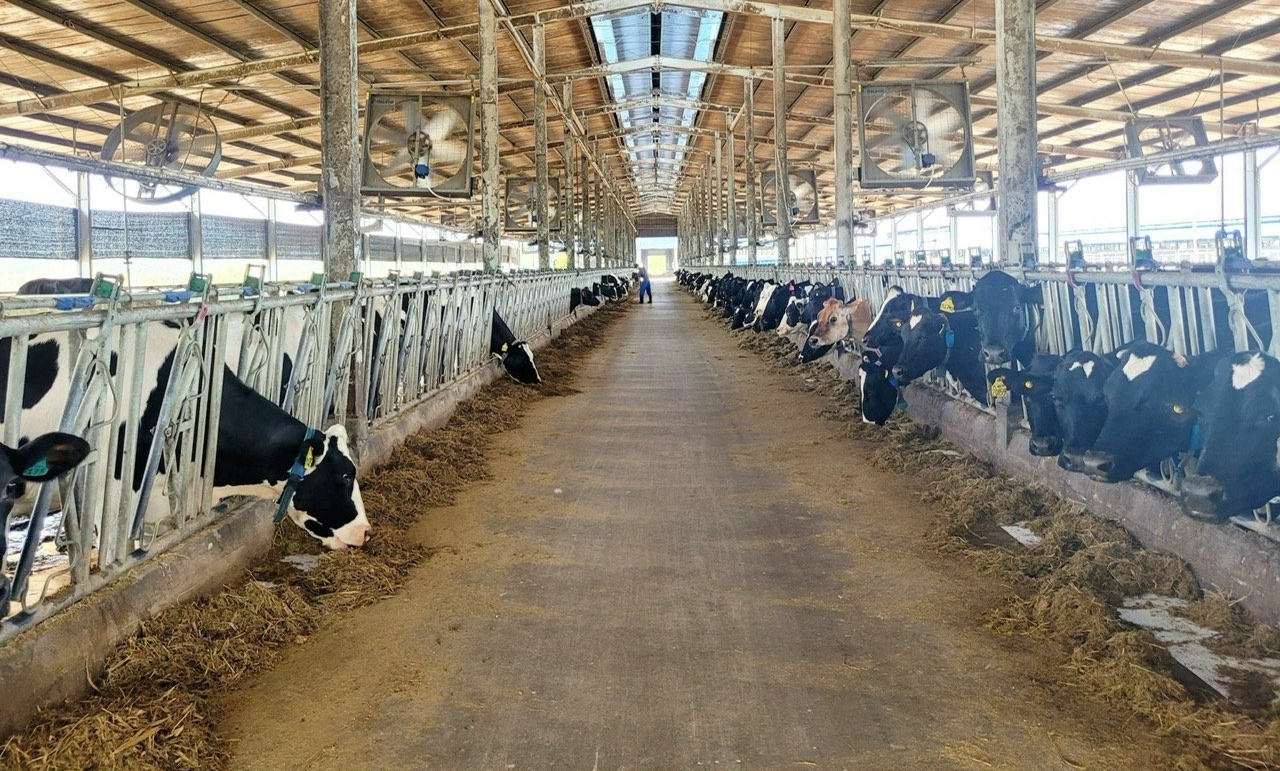
The dairy farm of Anova Agri Binh Duong Joint Stock Company is considered a pioneering model in applying high technology to the livestock sector. Photo: Tran Trung.
As an agricultural district in the northeast of the province of Binh Duong, Phu Giao possesses a solid infrastructure and a modernized traffic system that facilitates the conveyance of input materials and the consumption of output goods.
In addition to open investment policies, flexible and easy-to-access high-tech agricultural development policies, stimulate the transformation and sustainable growth of agriculture in general and livestock production in particular.
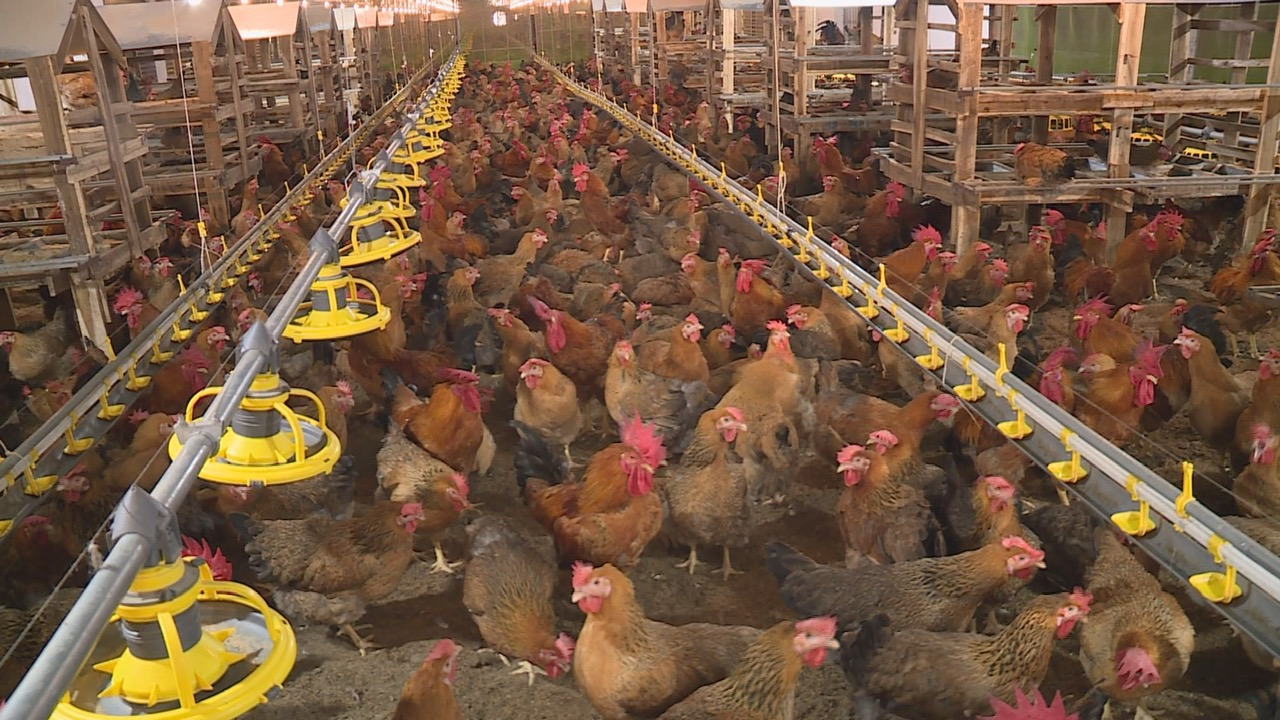
People of Phu Giao district join hands with businesses raising processed chickens. Photo: Tran Trung.
In accordance with the VietGAHP standard, large-scale farms, agricultural households, and cooperatives have employed synchronized smart technology production measures.
Farms with cooling systems to help stabilize temperature and humidity, cages, automatic feeding lines, automatic water drinking, artificial insemination technology, sex separation, and environmental treatment with advanced technologies (CDM, biogas, biological mattresses, biological products...) are becoming more prevalent along the entire value chain, from research and breeding to production organization, farming, processing, and preservation.
There are currently 153 concentrated livestock farms in the entire district of Phu Giao, with up to 145 farms employing advanced technology and processes for corporations such as C.P. Vietnam, Emivest, CJ Vina Agri, and Japfa Comfeed, among others.
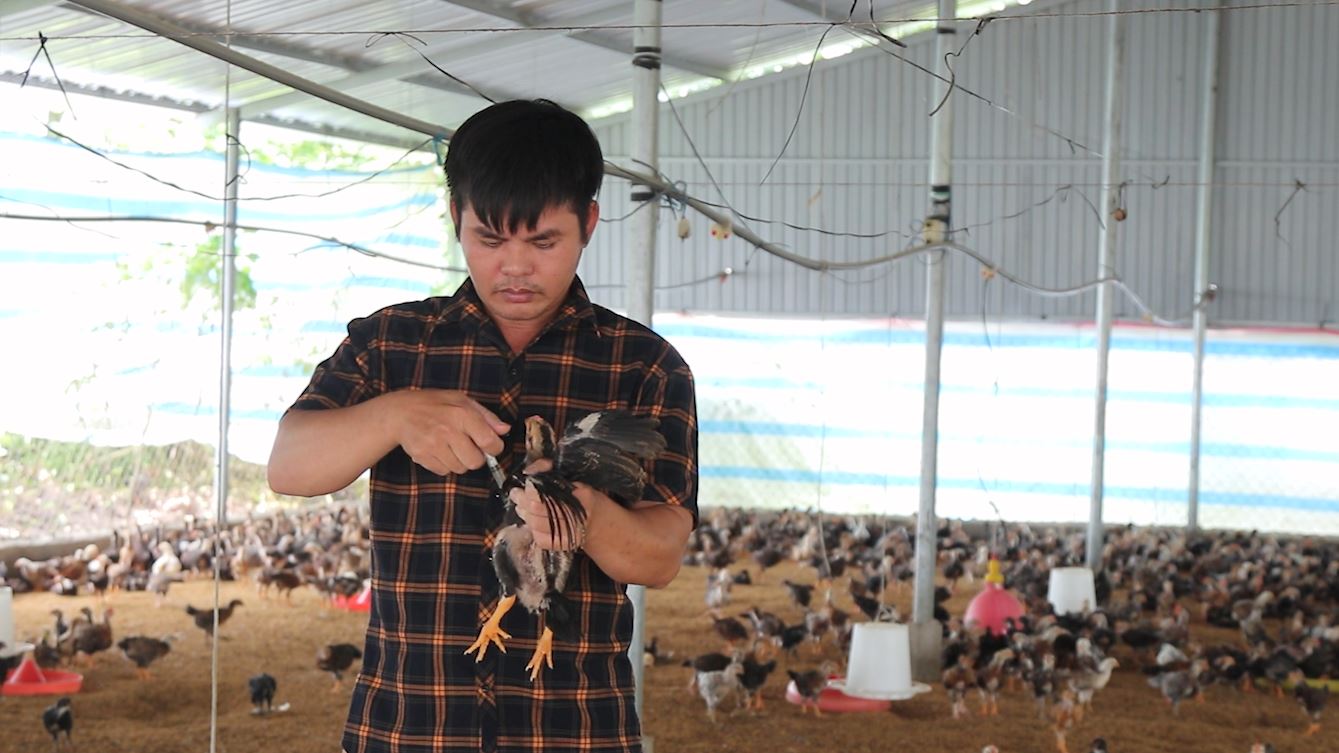
Farmers proactively take measures to prevent diseases for their livestock. Photo: Tran Trung.
The implementation of high-tech livestock models reduces labor and time for employees while improving accuracy, and working speed, and optimizing costs in accordance with the "all in - all out" principle to ensure biosafety.
Numerous plantations generate tens of billions of dong and employ hundreds of locals. It can be affirmed that these models have also contributed significantly to the change in the appearance of rural Phu Giao.
According to Mr. Doan Van Dong, Chairman of the Phu Giao District People's Committee, along with economic and social development, Phu Giao has focused on the development of agricultural production, particularly high-tech agriculture, in recent years. Consider this a crucial step towards achieving a triumph and laying the groundwork for contemporary and sustainable urban agriculture.
After four years of implementing a plan to develop agriculture, forestry, and fisheries, the Phu Giao district has made significant progress, particularly in animal husbandry. The restructuring of livestock production in the region has been drastically altered by the transition from small-scale to large-scale farming and the implementation of advanced technology.
Mr. Doan Van Dong explained that in addition to reducing proportion and increasing the production value of agriculture, the district concentrates on promoting key animals, such as hogs, cows, and chickens. In addition, the district promotes the growth of safe, concentrated production areas and livestock diversification to satisfy market demands.
In the coming years, the locality will continue to implement and maintain the Department of Animal Health-recognized disease-free base area for livestock and poultry; plan high-quality livestock breed production areas; and develop raw material production areas associated with slaughterhouses, industrial processing facilities, consumer markets, disease safety, biosecurity, and environmental protection.
In addition, effectively linking the organization of production and consumption of agricultural products and inviting businesses to participate in purchasing, processing, and locating markets for livestock products produced along the value chain will improve added value, thereby assisting farmers in increasing their income.
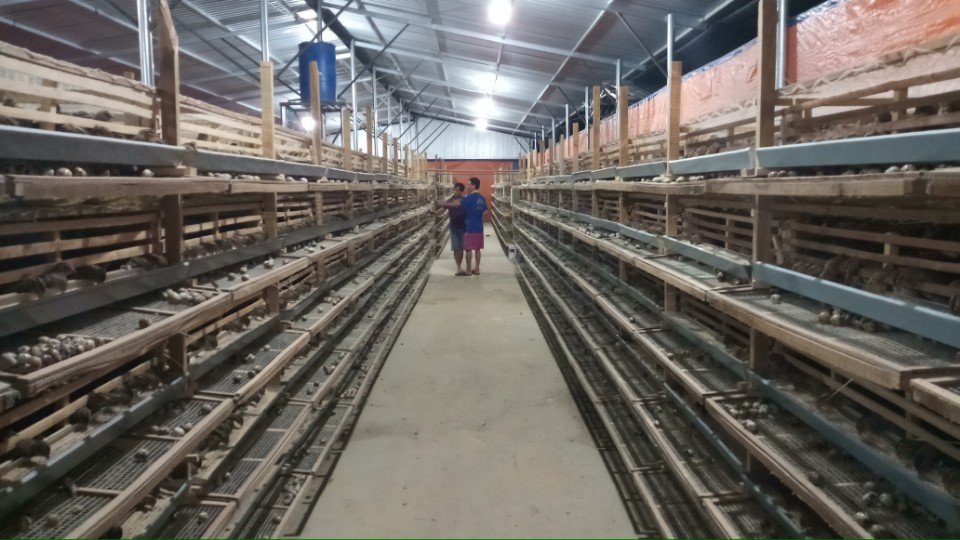
A new direction from the quail farming model in cold farms in Phu Giao. Photo: Tran Trung.
In accordance with the animal husbandry development direction, encourage livestock producers to invest in applying science and technology, and promote the research, selection, and creation of livestock varieties with high productivity, quality, and climate change adaptation. Synchronous application of advanced technology to production, care, and disease management, as well as product processing, preservation, and consumption.
Moreover, the district must have a policy to support financing for media promotion of livestock products with food safety supervision in the supply chain. Provide funding for brand development and periodic product chain monitoring. From the breeding stage, animal feed, and veterinary medication to slaughtering livestock and poultry and ingesting products, inspection and supervision must be strengthened.
"Developing livestock production into the main production sector increases the proportion of production value in the agricultural sector; Building a modern, sustainable agriculture based on the application of advanced technology to production to create a breakthrough in productivity and quality of agricultural products, meeting the increasing needs of society are requirements in current agricultural economic development", Chairman of Phu Giao district People's Committee stressed.
Translated by Linh Linh
![Turning wind and rain into action: [5] Hue applies modern technology in disaster forecasting](https://t.ex-cdn.com/nongnghiepmoitruong.vn/608w/files/news/2025/06/17/z6704423696987_15fd32ffc26d590d204d520c9dac6786-nongnghiep-093938.jpg)
(VAN) In Hue city, modern technology has recently been applied in meteorological and hydrological forecasting and warning, helping to reduce the damage caused by natural disasters.

(VAN) A cutting-edge farming technique being implemented on an experimental ranch in Arizona's Sonoran Desert has already saved a billion gallons of water over five years, according to Civil Eats.

(VAN) Poultry and pig production and the environment can be boosted through enhanced water technology, according to new research.
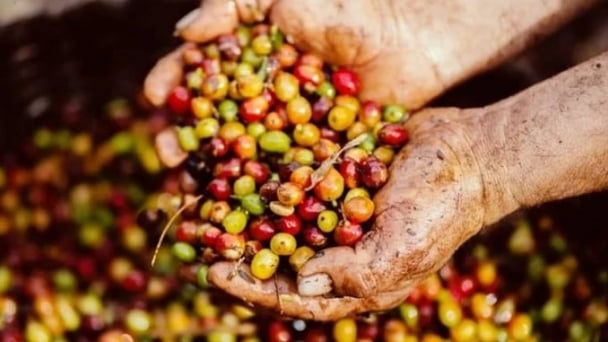
(VAN) Coffee prices on June 16, 2025 are unchanged. In Vietnam, local trading prices are holding steady, ranging around VND 112,000 – VND 112,500/kg.
![Turning wind and rain into action: [4] Bringing climate bulletins to remote and isolated areas](https://t.ex-cdn.com/nongnghiepmoitruong.vn/608w/files/linhnhp/2025/06/14/1152-z6704423696987_15fd32ffc26d590d204d520c9dac6786-nongnghiep-151141.jpg)
(VAN) The Vietnam Agriculture and Nature Newspaper interviewed Mr. Vu Thai Truong, Acting Head of Climate Change and Environment at UNDP Vietnam, to gain deeper insight into how climate bulletins are delivered to farmers.

(VAN) In Tien Giang, a high-tech shrimp farm has developed a distinctive energy-saving farming model that has yielded promising results.
![Turning wind and rain into action: [3] 300.000 farmers benefit from agro-climatic bulletins](https://t.ex-cdn.com/nongnghiepmoitruong.vn/608w/files/news/2025/06/12/e5a48259d6a262fc3bb3-nongnghiep-125122.jpg)
(VAN) The agro-climatic bulletin has become a valuable tool for farmers in the Mekong Delta. After more than five years of implementation, the initiative is gradually being expanded nationwide.